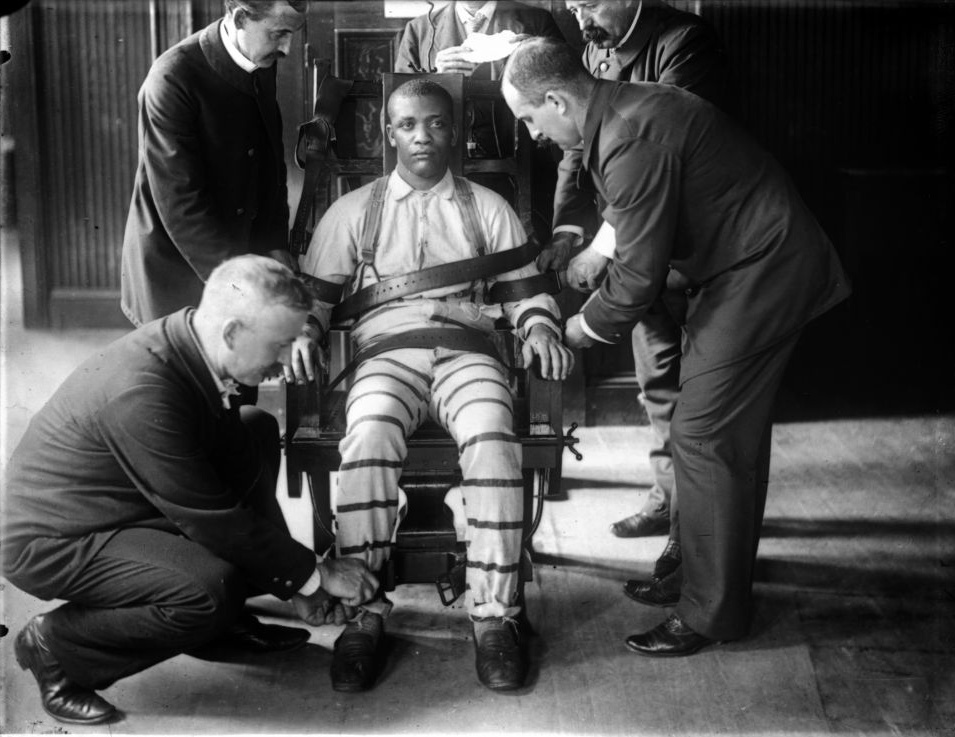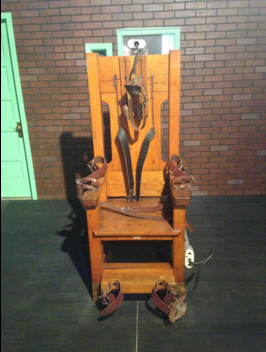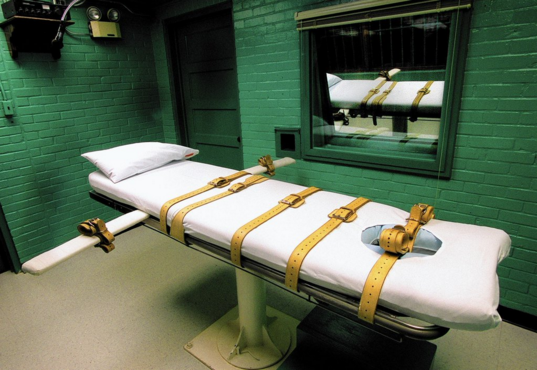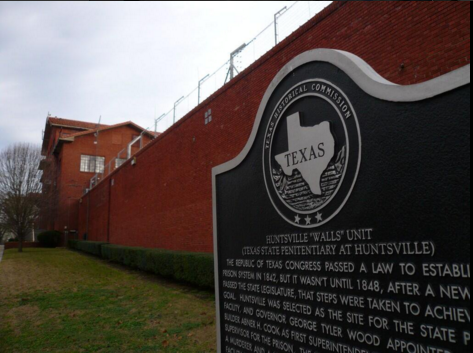The Harrowing Testimonies of Death Penalty Executioners

By:
Texas has administered the death penalty to a record 531 people since the state reinstated capital punishment in 1982. While Texas's numbers are particularly high, state executions are also legal in 30 other states:
The death penalty was a divisive issue in a recent Democratic debate, and made headlines earlier this week when the state of Missouri was accused of evading taxes by paying executioners in cash.
ATTN: recently took a look at the haunting final words of death row inmates.
The accounts of the "anonymous execution teams" who implement the death penalty are equally chilling, and rarely reach the public sphere, because their identities are protected by stringent state laws. Rare interviews from retired corrections officers, wardens, and prison chaplains, as well as those included in the 2000 Peabody Award winning radio documentary "Witness to an Execution" give us glimpses of executioners and their experiences.
 Wikimedia - wikimedia.org
Wikimedia - wikimedia.org
Here are the testimonies of six former executioners, wardens and prison personnel who have administered or supervised capital punishment.
1. Jerry Givens, former Virginia Executioner from 1982-1999.
 Twitter/JoshWhite_10
Twitter/JoshWhite_10
"If I had a choice, I would choose death by electrocution. That's more like cutting your lights off and on. It's a button you push once and then the machine runs by itself. It relieves you from being attached to it in some ways. You can't see the current go through the body. But with chemicals, it takes a while because you're dealing with three separate chemicals. You are on the other end with a needle in your hand. You can see the reaction of the body. You can see it going down the clear tube. So you can actually see the chemical going down the line and into the arm and see the effects of it. You are more attached to it. I know because I have done it."
2. Jennie Lancaster worked with the North Carolina Department of Corrections from 1977-2013 as a warden and eventual Chief Deputy Secretary.
 twitter/deathpenaltyrr
twitter/deathpenaltyrr
"At job interviews we don't ask things like, 'So how do you feel about wheeling away a body?' But maybe we should. It's not a role many of us picture ourselves playing."
3. Fred Allen participated in 130 executions as Captain of Corrections at Walls Unit Prison in Huntsville, Texas before he had a breakdown in 1998.
 Twitter/TheHistoryofTX
Twitter/TheHistoryofTX
"I was just working in the shop and all of a sudden something just triggered in me and I started shaking. And then I walked back into the house and my wife asked 'What's the matter?' and I said 'I don't feel good.' And tears — uncontrollable tears — was coming out of my eyes. And she said 'What's the matter?' And I said 'I just thought about that execution that I did two days ago, and everybody else's that I was involved with.' And what it was was something triggered within and it just — everybody — all of these executions all of a sudden all sprung forward."
4. Steve J. Martin began his corrections career on death row at age 23 at Texas State Penitentiary's Ellis Unit.
 twitter/crash42
twitter/crash42
"The whole thing made me step out of my role professionally, and touched me on an emotional level. I began to realize that this is how these things happen, executions. We do these things that personally you would normally never be involved in, because they're sanctioned by the government. And then we start walking through them in a mechanical fashion. We become detached. We lose our humanity."
5. Ron McAndrew, a former Warden at Florida State Prison, worked with the department of corrections from 1978-2000.
 Twitter/TVnewsviews
Twitter/TVnewsviews
"Searching my soul for answers that would satisfy the question on just why were we killing people and why our governor and politicians would do their 'chest pounding' over these ghastly spectacles was difficult. I began to remember myself as the person who went to Florida State Prison with a firm belief in the death penalty. And even though I still professed this belief, the questions of why we were doing this and if it were necessary, would not leave my mind. While appalled by the physical act of tying a person to a chair and burning him to death, I did not deny the reasons for the act. Here I want to say that one must be careful in searching his soul…one may just find that God is there and that He does not support the barbaric idea that man should execute man...After twenty-three years in Corrections, I have come to the conclusion that killing people is wrong. We have no business doing it, except in self-defense, in defense of someone else or in defense of the nation. And it's wrong for us to ask others do it for us."
6. Reverend Carroll Pickett served as the "death house" Chaplain from 1980-1995 at Walls Unit Prison in Huntsville, Texas.
 Wikimedia commons - wikimedia.org
Wikimedia commons - wikimedia.org
"After I had attended a few executions I developed a procedure. I would spend time with the condemned man working out what their last words would be so that I could pass the information on to the warden and make sure the killing wasn't started until the prisoner had finished speaking. When they were inside the death chamber they all wanted to maintain contact, they wanted me to hold their hand. But you can't do that because they are strapped and taped down. Instead I would stand right next to them and put my hand on their right leg where I could feel a pulse. That way, they always knew someone was with them to the very end."
Pickett is now an outspoken critic of capital punishment. He says:
"I know for a fact that I watched four innocent men being killed by the state of Texas, and many more men die who should never have been sent to the chamber...Of the innocent men, Carlos DeLuna was the hardest for me because I knew he had done nothing wrong. What was striking about him and the other innocent men was that they were the most peaceful at the point of their deaths."
During DeLuna's death, the first lethal injection drug failed. Pickett recalls:
"Those big, brown eyes were wide open. Here I am, five inches from his knee, five feet from his face, and he's looking straight at me. … And I don't know what the question was in his brain. I don't know what he was thinking. If I wanted to be paranoid, I could say he was thinking, 'You lied to me.'"
A Columbia Law report on DeLuna's death reads:
"If the first drug failed — and Pickett was sure it did, at least at first — then Carlos would be awake when the second drug started suffocating him. He also would feel a torturous burning when the third drug entered his veins. But the paralysis from the second drug would prevent him from showing any distress. Carlos would be tortured to death, but only he would know it."
